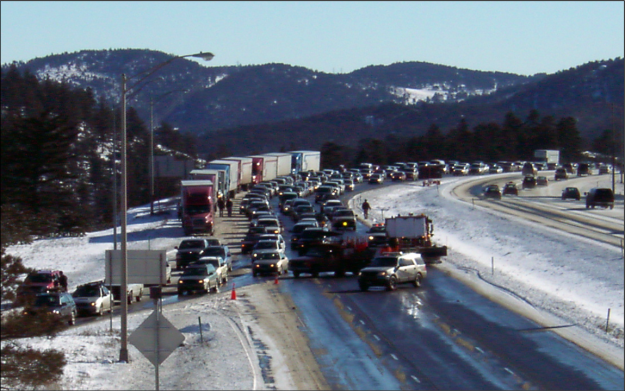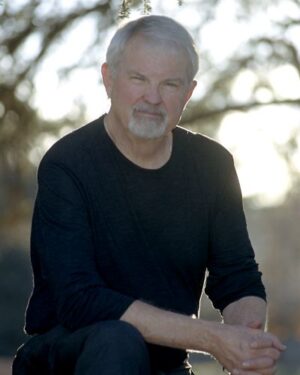Widgetized Section
Go to Admin » Appearance » Widgets » and move Gabfire Widget: Social into that MastheadOverlay zone
Lamm’s anti-Olympic legacy left lasting mark on history of Vail, Beaver Creek

You may have noticed a lack of fresh content on RealVail.com the last few weeks due to some pent-up post-pandemic traveling to coastal destinations (more on that in a future blog), but there have sadly been some notable deaths of prominent figures who made their mark on Vail history, and I’d be remiss in not at least mentioning them on RealVail.com.

Former Gov. Dick Lamm recently passed, and in Vail he’ll forever be remembered as the former state lawmaker who killed the 1976 Winter Olympics that would have featured alpine events at Beaver Creek. I interviewed him a couple of times while he was teaching at the University of Denver and have reposted one of those interviews below.
Vail founder Peter Seibert was not a fan of Lamm, for obvious reasons, and Seibert later sought to fully develop the Snowbasin ski area in Utah that would host the 2002 Olympic downhill, but by then Seibert and Vail’s Rod Slifer had sold Snowbasin. Twice Seibert was thwarted in his bid to host the Games, and one of those times was thanks to Lamm.
Another Vail founder and legend of the Colorado retail scene, Dave Gorsuch, also recently passed, drawing a huge remembrance celebration at the Gerald R. Ford Amphitheater. Gorsuch was a formative figure on both the retail and ski industry fronts and will rightly be remembered as one of Vail’s founding fathers.
Finally, Michael Cacioppo, a former Vail Town Council member and longtime anti-government gadfly, also recently passed, as reported by the Vail Daily. Left out of their story is the fact that Cacioppo often took his sometimes-justified criticism of public servants too far, veering into mean-spirited and unwarranted attacks that, in my opinion, have helped poison local politics and public discourse in Eagle County.
Rather than trying to win public policy debates at the polls, local Republicans, like their state and national brethren, have taken to misguided recall attempts, gerrymandering, voter disenfranchisement and even the extremes of armed attacks on police and elected officials that culminated in the Jan. 6 domestic terror assault on the U.S. Capitol. The vitriol and the hatred must stop so we can come together as a country to peacefully solve our biggest problems.
Now here’s a partial repost of my most recent interview with Lamm on his role in getting Colorado voters to reject the 1976 Winter Olympics – making us the only place that’s ever given the Games back to the IOC. This posted in 2014 on RockyMountainPost.com:
Colorado green leaders question Olympic bid in wake of Sochi costs, impacts
Former Colorado Gov. Dick Lamm, who spearheaded the rejection of the 1976 Denver Winter Olympics, says he’s not opposed to a future Colorado bid but advocates a rethinking of the games after the “wildly out of control” costs and environmental impacts of the $51 billion Sochi “extravaganza.”
“Now that we’ve got the most expensive Olympics in history, I just think there’s a lot of need in the world, and I can’t believe that you can’t have a cost-effective Olympics,” said Lamm, a three-term Democratic governor who now teaches public policy at the University of Denver.
As a state representative in 1972 Lamm formed a group called “Citizens for Colorado’s Future” that opposed the 1976 Denver Olympics – awarded by the International Olympic Committee (IOC) in 1970 — based on concerns about massive public debt, rampant growth and environmental devastation.
Colorado voters by a wide margin turned down state funding of the Olympics in November of 1972, forcing the IOC to relocate the games to Innsbruck, Austria, and marking the only time a city has ever given back the Olympics. Estimated costs for the Denver Olympics started at $14 million and had ballooned to $77 million by March of 1972.
“I was concerned that we had weak land-use laws, we had very limited ability as a state to say no to any developers, and it seemed to me it was a financial disaster waiting to happen and an environmental insult to Colorado,” Lamm said, adding he’s not taking a position on any future Colorado Olympic bid but that any proposal needs to be significantly scaled back from Sochi and make far more financial sense.
“I make no judgment on anything other than I feel the people voted back in 1972, and I think they voted wisely,” Lamm said. “The history of the Winter Olympics is a history of a flood of red ink, and you wonder whether or not there should be a rethinking.”
As far as a future Colorado bid, the issue of distance between venues and improving the state’s mountain transportation system remains a critical one for Lamm and members of Colorado’s conservation community.
“We have a bottleneck in Interstate 70 going up to the mountains; it can’t be expanded,” said Lamm, noting the 1976 Olympics would have been held in Denver, Steamboat Springs and Beaver Creek, which hadn’t been built yet. “Just simply the Balkanized nature of the Olympics promised all kinds of logistical problems, but we are a much more sophisticated state at this time. It’s an expense problem, but I think we can engineer our way around that bottleneck.”
Read the full 2014 on RockyMountainPost.com.



Grateful Fred
August 18, 2021 at 8:02 am
He was concerned with the rampant development back then. He must have been disappointed in the runaway development we’ve seen for the last twenty years. Today it’s all about the mighty dollar turning paradise into a parking lot.